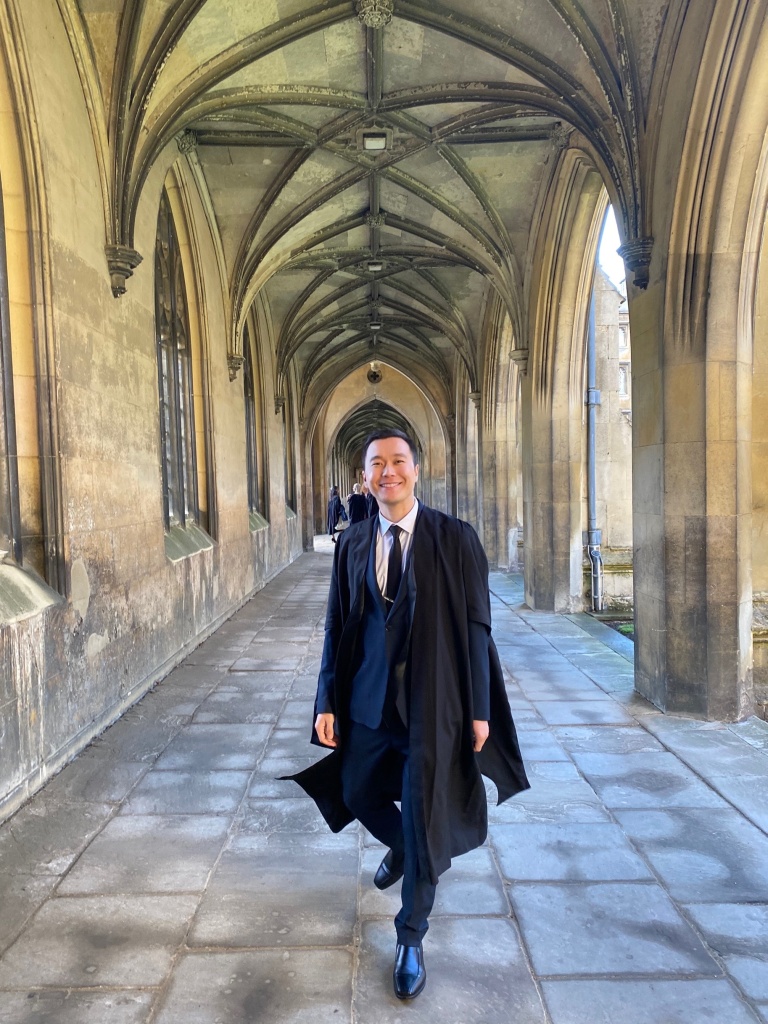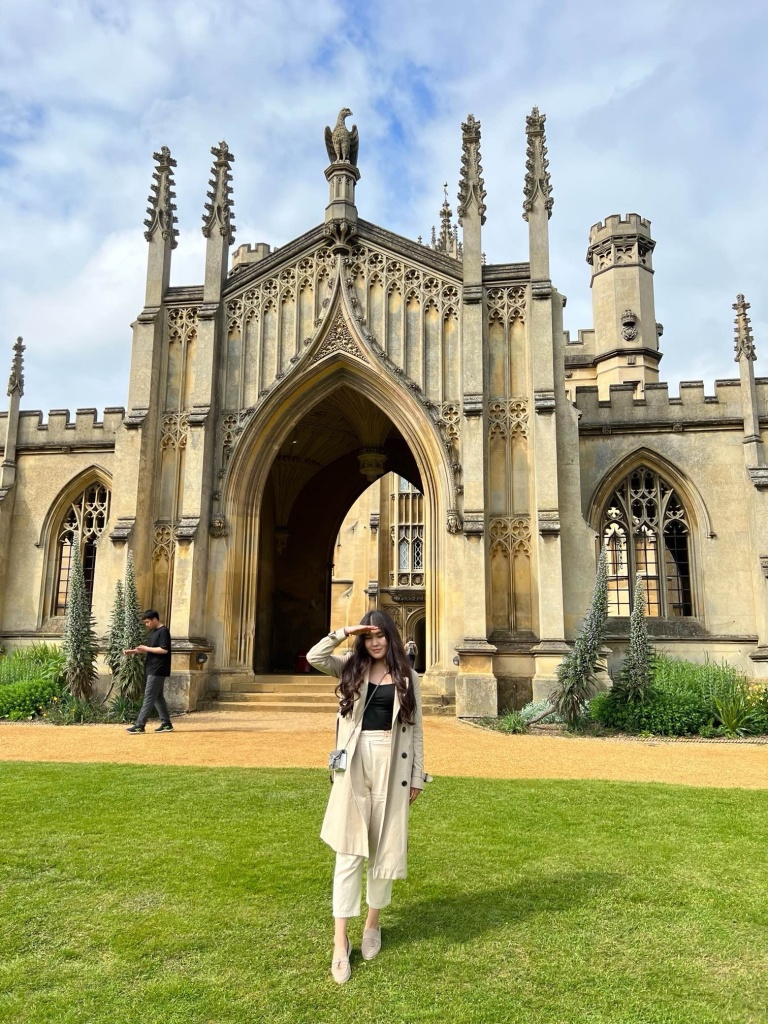Studying at the University of Cambridge is a dream for students around the world. In this article, we explore the admissions process, what the university expects from applicants, what it’s like to study there, and the opportunities a Cambridge degree can unlock.
Yerkebulan Sairambay, Assistant Professor, Senior Research Fellow, linkedin
Choosing a university
I studied at six universities during my undergraduate and master’s studies, and for my PhD in Media Political Sociology, I chose the University of Cambridge. In 2018, when I applied, it was ranked No. 1 in the world by QS. The university is renowned for its academic excellence and offers unique opportunities for in-depth research and development. I was also drawn to the highly qualified academic staff.
Application process
The application process for a PhD at Cambridge involves several stages: submitting an application, preparing a research proposal, an interview with a potential supervisor via Skype, and taking the IELTS exam. The most challenging parts were the proposal and the interview, as I had to demonstrate both deep knowledge and originality of ideas.
Applicants must have strong academic achievements, well-developed research proposals, and extracurricular accomplishments that demonstrate leadership and organizational skills.
I prepared my diplomas, transcripts, research proposal, took the IELTS (scoring 8.0 with a minimum requirement of 7.5), and passed the interview. I prepared for IELTS independently and developed my research project by studying my field and analyzing academic trends.
To prepare, I used academic journals, subject-related books, and recent publications in top journals. For foundational subjects, I recommend online libraries from Western universities and textbooks on research methods. In my case, I used MyGlasgow Library, which I had access to as a master’s student at the University of Glasgow.
Academic experience
In the first year of a PhD at Cambridge, the main focus is research, along with courses in social science methods and advanced statistics. The workload is significantly heavier, with daily independent work and close collaboration with professors. Compared to Kazakhstan, where there is more theory, Cambridge emphasizes practical work and preparation for an academic career.

There are no traditional exams in the PhD program — assessment is based on research projects and academic writing. At the end of each year, doctoral students submit a "progress paper." Feedback from professors is detailed, and meetings with supervisors are regular. For example, I wrote 3000-5000 words a month — my supervisor reviewed and commented on my work, and we discussed the progress together.
Cambridge provides extensive access to libraries, research centers, and leading academic journals. The university also supports career development through career centers, seminars, job fairs, and strong ties with major companies in science and business.
Advice
A Cambridge degree opens up vast career opportunities in both academia and industry. Graduates often secure high-level positions in international companies or continue their careers in research institutions.
For those dreaming of top universities, I recommend early preparation: participate in research, publish papers, and develop critical thinking. Strong communication skills are also essential, as collaboration with scholars worldwide is often required.
One of the most common mistakes applicants make is submitting a weak research proposal. It must be original, well-structured, and address current scientific challenges. Another underestimated part is interview preparation, which is a crucial selection stage.
Cambridge gave me not only invaluable experience but also taught me how to conduct research, write articles, and publish in international academic journals.
Nuray Salina, student at Cambridge, linkedin
Choosing a university
From my first year, I interned in consulting, auditing, banking, and FMCG to find my niche. I became fascinated with e-commerce, especially international marketplaces.
While studying at KIMEP, I researched Amazon, observed entrepreneurs, and decided to create my own product. I started working with a major seller and eventually launched my own business.
When choosing a university, I focused on:
— strong programs in entrepreneurship and strategic management
— accelerators, venture capital funds, and successful startups
— professors with real-world business experience
— international recognition and prestige
The University of Cambridge was the clear choice: in 2023, it ranked second globally. Cambridge Judge Business School is currently ranked first in the Business and Management category. It also topped the FT Responsible Business Education Awards 2025, highlighting its contribution to sustainable and socially responsible entrepreneurship.
For me, entrepreneurship is not just about innovation and money — it’s about creating value for society. That’s what made Cambridge the ideal place to study.
Application process
The application was well-explained on the website, but that didn’t make it easy. It required thorough preparation to prove I met all the criteria. I created an account, filled out the application, attached my CV, recommendation letters, transcripts, certificates, essays, and responses about my career goals. In my essay, I focused on how my values align with the university’s philosophy. It was important to present a cohesive story of a candidate ready to contribute to the Cambridge community.
One of the most memorable moments was the interview. I prepared for the questions but was met with more of an intellectual conversation. The professor who conducted it later became one of my instructors. After the interview, I received a conditional offer — admission subject to conditions. I had to confirm financial readiness, submit official documents, and prove my English proficiency. I also had to gain membership in one of the colleges — I joined Hughes Hall. When I received the unconditional offer, I realized it wasn’t just a new study chapter ahead—it was a whole new stage in life.
Admission required not only high grades but also real-world experience. The university sought candidates who had already taken steps toward their goals — through corporate work, startups, or entrepreneurial efforts. In my case, this included my own business, work at a major bank, Procter & Gamble, and Kazakhtelecom JSC. Strong recommendations from my KIMEP professor and a manager were crucial in presenting a complete picture.
Academic experience
The main difference at Cambridge is its practical focus. In Kazakhstan, education was more theoretical, lecture-based, and research-oriented. Here, we immediately apply knowledge: solve business cases, improve processes, work on startups, and analyze company strategies.
The workload is more intense. You must participate in discussions, work in teams, complete projects, and constantly self-study. This requires self-discipline and quick decision-making but helps build essential skills.

The assessment system is also different. Instead of exams, the key component is a final essay or project. You may receive feedback throughout the term, but your final grade depends entirely on the final submission. Grading is strict — 70% is considered excellent, and 100% is nearly impossible. To complete the program, you must also write a dissertation involving deep analysis and independent work.
Cambridge offers vast academic and career opportunities. Besides access to top resources, there are professors who are actual entrepreneurs. The university supports startups, helps attract investment, and connects students with venture funds. The career center organizes internships, assists with CVs, and fosters networking. Job fairs are industry-specific — investment, consulting, tech. Cambridge isn’t just a place to study — it’s a platform for launching a career or business.
Advice
A Cambridge degree is more than a line on a resume — it’s knowledge, skills, and connections. The experience was a catalyst for my growth: I studied, ran a startup, and built relationships. The university gives access to industry leaders, real projects, and practitioner professors who offer advice, connections, and sometimes even career opportunities. After graduation, many paths open — from working in top firms to starting your own business. Most importantly, you gain confidence in yourself.
Start preparing for admission as early as possible. Try internships and jobs to understand what you truly want. High grades are important — they show discipline and effort. Your English should be not just good, but excellent — that will give you an edge. And most importantly — don’t give up. Even if it seems difficult, keep trying. Success comes to those who persist.
A common mistake when applying is insufficient research into the university. It’s vital to understand exactly why a specific program is right for you. Another frequent error is weak essays or interviews. You must clearly explain how the university will help you achieve your goals. Before applying, study the courses, faculty, career options, and student communities. The best way to learn more? Talk to current students and alumni.